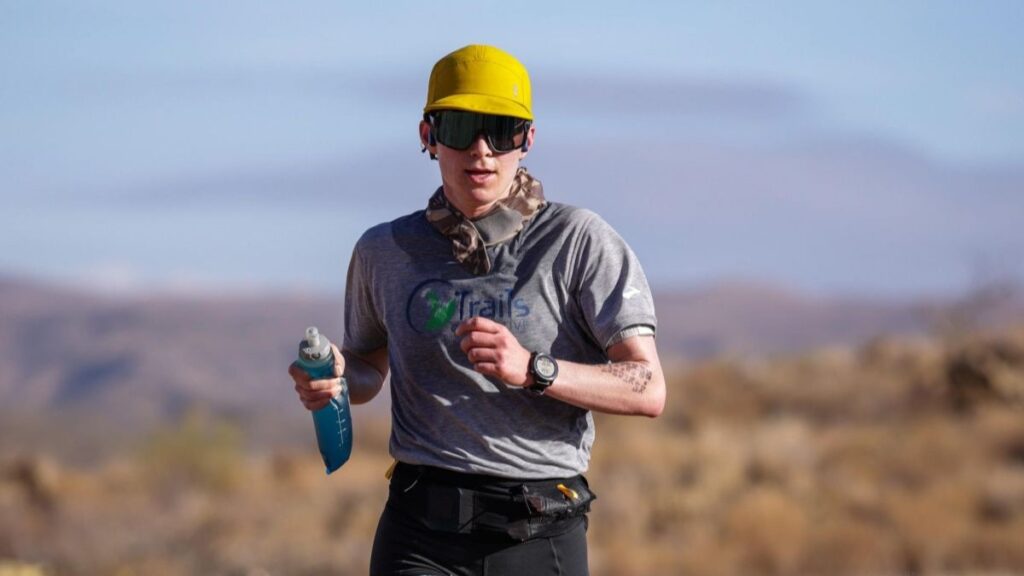Riley Brady has emerged as a noteworthy contender in the ultrarunning world, culminating a steady ascent with a remarkable six-month span that included winning the Javelina 100 Mile and setting a course record at the competitive Black Canyon 100k. As Brady prepares for this year’s Western States 100, their recent performances and insights into training could offer valuable perspectives for experienced ultrarunners.
Brady, who identifies as non-binary and races in the women’s division, hails from New Hope, Pennsylvania. Their early athletic pursuits included basketball and soccer, but a natural inclination toward running led them to cross-country running in high school. Brady’s competitive journey in ultrarunning began in college after a friend introduced them to the Cayuga Trails 50 Mile. The transition to ultrarunning was facilitated by early success in a local 50k race, where Brady finished second. This initial performance sparked a deeper commitment to the sport.
After stepping up to the Vermont 100 Mile at 21, Brady’s focus shifted increasingly toward longer distances. Although their journey to secure a Golden Ticket to the Western States 100 was fraught with challenges, including several near-misses, their determination paid off when they finished fifth at the 2019 Black Canyon 100k. This early experience revealed their potential in the ultrarunning arena as they began to secure wins at various distances.
An integral shift in Brady’s training was the decision to enlist David Roche as their coach. This partnership led to a more structured training regimen, moving away from an unstructured approach to workouts. Brady acknowledges that this paradigm shift transformed their running experience, allowing for more intentional training strategies that included focus on pacing, nutrition, and mental fortitude. With improved awareness of their physiological responses during long runs and races, Brady recognized the importance of tailored nutrition strategies; for instance, they learned the necessity of maintaining an appropriate sodium intake after gastrointestinal issues hampered their performance during races.
During the 2023 Western States 100, Brady encountered significant stomach issues, which they attributed to an excess of dietary salt. Despite finishing 14th, the experience was enlightening, highlighting the constant need for adaptation in race nutrition strategies. In contrast, their success later at the Javelina 100 Mile demonstrated their ability to apply learning from previous performances, as they employed a more judicious approach to hydration and nutrition, ultimately securing a second chance at Western States.
Brady’s recent victory at the 2025 Black Canyon 100k, where they set a new course record, illustrates their ongoing evolution as an athlete. This race further underscored the benefits of effective nutrition management combined with an understanding of course dynamics. The course’s net downhill profile and the cooler weather conditions presented predictable elements that Brady capitalized on, showcasing the importance of terrain familiarization and adaptability. Their focused approach to nutrition played a key role in maintaining steady energy levels, allowing them to race with confidence.
In addition to performance adaptations and training strategy, Brady has navigated the competitive landscape of ultrarunning with a sense of ambition. They have secured a professional contract with Nike, illustrating the growing opportunities in the sport for emerging athletes. This sponsorship has not only afforded them the financial resources to train full-time but has also facilitated partnerships that provide access to cutting-edge gear and support systems, elements critical for ultrarunners striving for peak performance.
As top contenders like Brady prepare for major races such as Western States, the sport continues to evolve in terms of both competitive dynamics and race opportunities. The introduction of new Golden Ticket races, for instance, adds layers of strategy for athletes to consider in their qualification paths. Brady’s recent successes reinforce the need for a comprehensive and adaptable training plan that not only focuses on physical capabilities but extends into tactical race planning and ongoing assessment of performance variables.
For ultrarunners preparing for demanding mountain races, the key takeaway from Riley Brady’s experiences underscores the importance of strategic training that prioritizes nutrition, mental resilience, and adaptability to terrain. Following their example, athletes should continuously evaluate and adjust their training and racing tactics to push their boundaries, embracing the learning experiences that come with each race. By cultivating a profound understanding of one’s physiology and race dynamics, ultrarunners can enhance both performance and enjoyment in the sport as they work toward their next competition.
